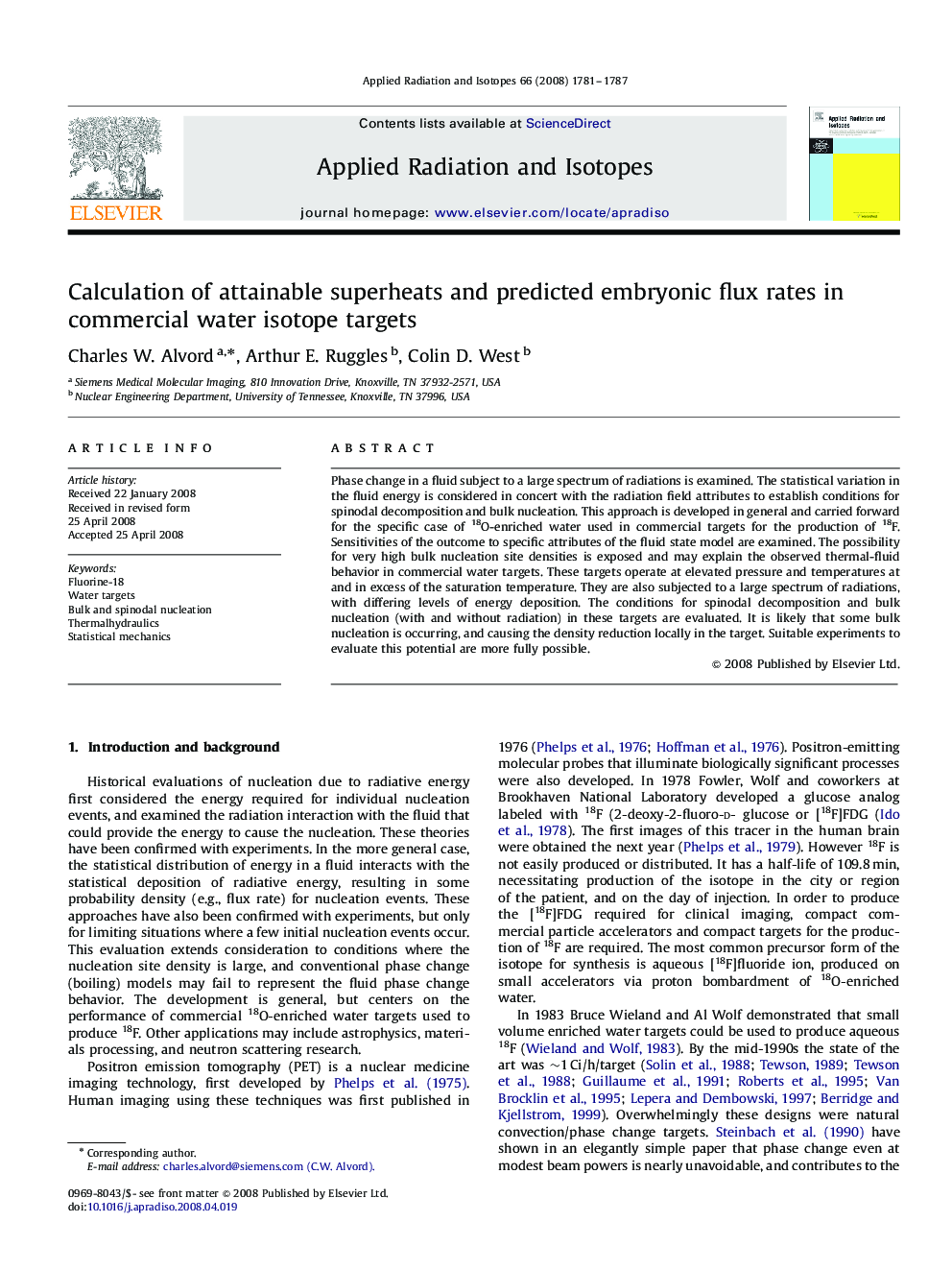| Article ID | Journal | Published Year | Pages | File Type |
|---|---|---|---|---|
| 1879477 | Applied Radiation and Isotopes | 2008 | 7 Pages |
Abstract
Phase change in a fluid subject to a large spectrum of radiations is examined. The statistical variation in the fluid energy is considered in concert with the radiation field attributes to establish conditions for spinodal decomposition and bulk nucleation. This approach is developed in general and carried forward for the specific case of 18O-enriched water used in commercial targets for the production of 18F. Sensitivities of the outcome to specific attributes of the fluid state model are examined. The possibility for very high bulk nucleation site densities is exposed and may explain the observed thermal-fluid behavior in commercial water targets. These targets operate at elevated pressure and temperatures at and in excess of the saturation temperature. They are also subjected to a large spectrum of radiations, with differing levels of energy deposition. The conditions for spinodal decomposition and bulk nucleation (with and without radiation) in these targets are evaluated. It is likely that some bulk nucleation is occurring, and causing the density reduction locally in the target. Suitable experiments to evaluate this potential are more fully possible.
Related Topics
Physical Sciences and Engineering
Physics and Astronomy
Radiation
Authors
Charles W. Alvord, Arthur E. Ruggles, Colin D. West,
